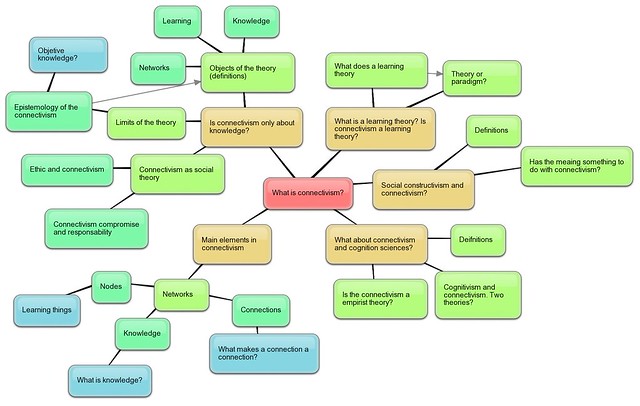This is not intended as a teetotaler response; rather it is suggesting that we teach internet users to “drink responsibly” while online. . . To Paul Miller, reflecting back on his year offline in his article in The Verge [May 1, 2013), “I’m still here: back online after a year without the internet,” the have or have not of the internet became a relational issue, and that it still is. The internet is simultaneously the hero and the villain. . .
The beauty of a blog is that it provides one with a platform to express an opinion, to agree or disagree with the most brilliant of minds. The blog provides validity to a voice, although possibly an artificial one. For, who am I to say? I am just me; but this is my blog; so I get to say. But how do we sift through all of the voices – including our own? This is, I believe, what George Siemens is concerned about, when he addresses the need to synthesize fragmented information distributed online – to make meaningful connections – . . .
As we continue our conversation about the use of social media for social change, we come to design thinker, Tristan Harris, whose tagline states that he “helps the technology industry more consciously and ethically shape the human spirit and human potential.” In his TedTalk, “How a handful of tech companies control billions of minds every day” (April 2017), Harris . . .
I joined a #whatisschool Education Twitter chat on 9/12/19 that was inspiring and refreshing and titled: Growing a Peaceful School. (Here are some screenshots of the series on) . . .



